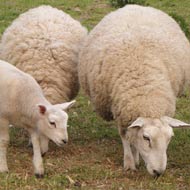
Study reveals 96 per cent of incidents cause stress or injury.
Following a recent survey into sheep worrying, the National Sheep Association (NSA) has launched a new online resource providing valuable information and guidance on the topic.
With 580 sheep farmers taking part, the survey revealed that 35 per cent of attacks led to the death of at least one sheep, and 96 per cent of attacks led to at least one sheep being stressed or injured.
Although not all attacks resulted in obvious physical damage, 63 per cent of attacks resulted in invisible damage to sheep, such as lower conception rates at mating time and abortion in pregnant sheep.
Farmers responding to the survey consider dogs walked without leads around animals as the main cause of sheep worrying, followed by owners’ assumption that their pet won’t attack livestock.
In a bid to increase public awareness and understanding, the new resource offers practical advice on how owners should handle their dog when out in the countryside. It covers all aspects of walking a dog in rural areas, from staying within the law to training tips.
Reports of some attacks on sheep have been known to cause up to £10,000 worth of damage to farmers. The new website section on sheep worrying includes legal information and tips to help farmers deal with attacks on their sheep.
NSA Chief Executive, Phil Stocker, said: “NSA has created this new website to help walkers and their dogs enjoy fun and safe days out without disrupting the important work of sheep farmers. It will hopefully increase understanding of sheep worrying among dog owners and ensure they are confident of their responsibilities when walking on or living near farmland.”
The new online resource can be found at www.nationalsheep.org.uk/dog-owners



 The veterinary mental health charity Vetlife is inviting the veterinary community to join it for a sponsored cold-water dip.
The veterinary mental health charity Vetlife is inviting the veterinary community to join it for a sponsored cold-water dip.